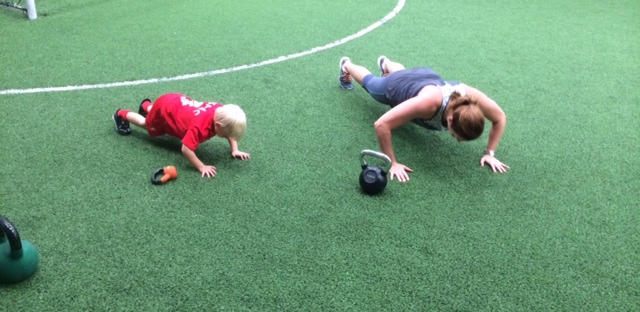Why Should Parents Encourage Children to Play Sports?
Forcing ourchildren to play sportsmay seem like a difficult issue to deal with, or it may even sound aggressive if we don’t use the right words or concepts. So let’s talk about it.
Physical activity is part of our lives, whether you like it or not, to a greater or lesser extent. If not, we would be simple sloths (no insulting sloths, of course).

When it comes to how we raise our children, we must keep in mind that sport or physical activity is natural and is in our genes.
In the past – at least before the fifteenth century – there was no word sport. This is a derivative of the French word “desporter” which means “to have fun or play“.
Originally, the sport was called “socca“, transforming over time into sockerand finally soccerat the end of the 18th century.
Sports & Children
Like every human being, when we are born, we all have a certain predisposition towards something in particular when we begin to think and understand our surroundings.
Of course, depending on this, we will be more or less likely to enhance our innate abilities.
At the same time, it is clear that there are children who have no interest at all in practicing any sport, and that is bad either. The issue is that sport is extremely important for our children to grow better.
According to Dr. Jim Taylor, an expert in the psychology of sport and parenting, in his book “Positive Pushing: How to Raise a Successful and Happy Child” says that it is essential to instill in the “participation” of children in this area, it will improve their understanding and reaction of their environment.
The Role of Parents
It is clear that parents often do not have this inclination to sport either. On the contrary, others are fanatics or worse, they are frustrated according to their own experiences.
The idea is to present the sport to children in a natural way, to have fun. Over time we will realize if they are really interested and want to follow that path. You don’t need to expect your child to be a professional footballer, playing in NFL playoff favorites teams. They just need to play which sport they like and have fun doing it.
On the other way around, if they do not like sports, as parents, we have the obligation to teach them that sports are good not only for health but for life itself.
Benefits of Sport in Children
Pediatric and sports experts say that parental support creates a positive experience in toddlers. At the same time, this highlights that sport has to be like a continuous process.
Starting from this point, we cite some vital benefits of sport in children:
- Prevents sedentary lifestyle: Prevents from taking up their time watching TV, playing with cell phones, video games, etc.
- They learn to create habits
- They learn to follow rules
- They learn to socialize and communicate
- Promotes physical development, both muscles, and bones
- Increase their motor skills
- They can correct physical defects
- They sleep better
- They will grow healthier and stronger
- And above all, sports will give those moments of happiness and joy.
Can Kids Practice Sports at Any Age?
Specialists suggest that children can practice physical activity once they have developed basic motor skills, as well as mental and social.

Children from 2 to 5 years old can start running, swimming and especially enjoy the playful time.
From 6 to 9 years old, with a little more responsibility from parents, children can enter the world of tennis, soccer, martial arts, gymnastics, baseball, and jockey.
From 10 years on, on the way to adolescence, with physical development, greater resistance and with more advantages with respect to other ages, they can perform much morecontact sports such as wrestling. In addition to promoting other sports and skills, in order to excel among others.
Conclusion
Sports bring new values ??to children, new ways to discover the world around them. It provides skills that will train them for adulthood.
Sport teaches to compete healthily and on equal terms, or at least those are the expected outcomes.
But, in the end, a clarification is needed. It is not about forcing children to play sports but to encourage good practices for better development, supporting them to improve day-to-day. Let’s not confuse these concepts. Sport is life! Support Sports!
Author: Alan Rada